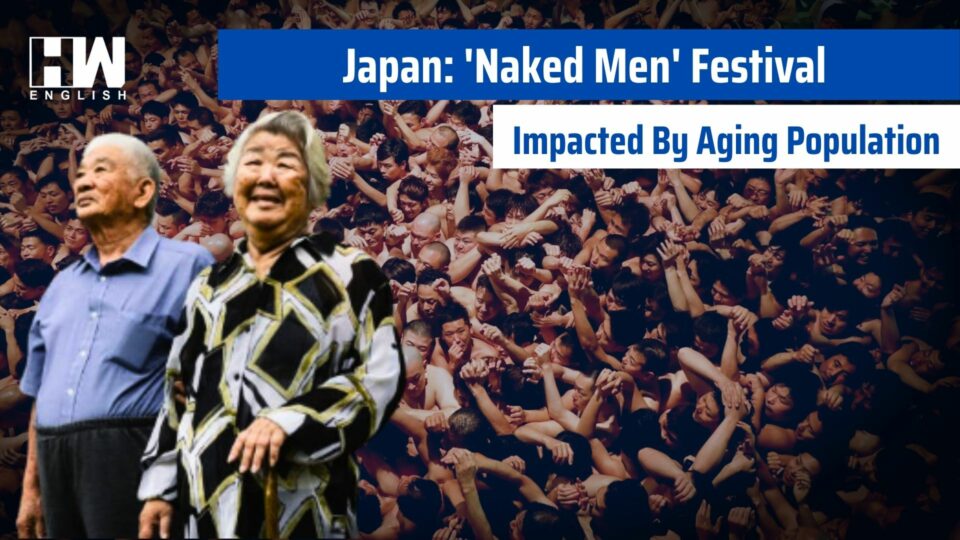The age-old “Sominsai” festival in Japan, known for its unique traditions involving naked men and wooden talismans, concluded for the last time at the Kokuseki Temple in the Iwate region. The ritual, celebrated for a thousand years, faced challenges due to the ageing local population’s inability to manage the extensive event. The festival, considered one of Japan’s quirkiest, has become another casualty of the country’s broader ageing population crisis affecting rural communities.
Established in 729, the temple cited the difficulty of organizing such a large-scale event, with an ageing population struggling to uphold the ritual’s demands. Japan has experienced rapid ageing, leading to the closure of numerous schools, shops, and services, especially in small and rural areas.
Traditionally held from the seventh day of the Lunar New Year until the following morning, the Sominsai festival was scaled down during the COVID-19 pandemic, featuring only prayer ceremonies and more minor rituals. The final edition, a shortened version, attracted the largest crowd in recent memory.
During the festival’s climax, men in white loincloths bathed in a creek, marched around the temple grounds, and chanted “jasso joyasa.” The highlight involved a dramatic struggle among hundreds of men inside the temple, fighting over a bag of talismans.
Also Read: Farmers Seek MSP Ordinance Ahead Of Government Talks
Toshiaki Kikuchi, a resident organizing the festival, expressed hope for the tradition’s return, even in a different format. While many participants and visitors expressed sadness at the festival’s end, they acknowledged the challenges posed by Japan’s demographic shifts.
As Japan grapples with a declining birthrate, an ageing population, and a shortage of young people to sustain various traditions, the Kokuseki Temple plans to replace the festival with prayer ceremonies and explore alternative ways to continue its spiritual practices from the following year onwards. The changing demographics and social norms may necessitate adjustments in traditional festivals across Japan to ensure their continuity.
As an independent media platform, we do not take advertisements from governments and corporate houses. It is you, our readers, who have supported us on our journey to do honest and unbiased journalism. Please contribute, so that we can continue to do the same in future.

